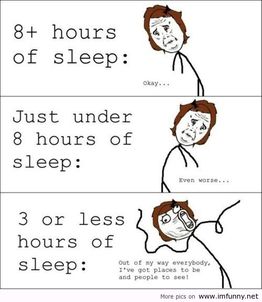"How Did You Get That Job?!" is a series of interviews with professionals who have parlayed their university degrees and unique skill sets into successful careers.
Each featured guest will explain, in his or her own words, how they chose a course of study, how their professional interests evolved over time, and provide informed advice for students still trying to discern their academic and professional paths.
I earned a bachelor of arts in journalism from the Reynolds School of Journalism at the University of Nevada. I declared a major in marketing my freshman year but after my first semester I knew it wasn’t the right fit for me. When I was in high school I was very active in a business leadership club and also served as editor of the school newspaper so I knew that I was meant for work that combined writing, business acumen and project management.
I learned that my journalism school offered a PR emphasis and knew right away that it would be the perfect fit for me. I am very proud of my journalism degree. I studied media ethics, online and magazine writing and PR case studies – all classes that gave me the resources and tools I use every day in marketing and communications.
2. Did you know what you wanted to be when you were in college / grad school?
When I was in high school and college I was very active in many different clubs and organizations, from politics to healthy living. As graduation neared in 2011, the job market still hadn’t recovered from the recession and I saw many of my friends out of work in their field. I was scared that I would end up working somewhere outside my scope of education and passion, but two months to the day of graduation I started what I described at 22 as my “dream job.”
3. How did you find your way to your current career?
I passionately believe I would not be where I am today without three things: preparation, opportunity and luck.
Since I graduated from college I have had three full time jobs at very respectable organizations. My first job was as a Public Relations Coordinator for the Global Communications team at an international corporation with headquarters in both Reno and Las Vegas, and I was lucky enough to get to stay in Reno.
I mention luck first and foremost because of the happenstance of even finding the opportunity; I was recruited through LinkedIn. Although I was only a college senior, a recruiter found my profile and asked me to apply for a marketing position based on my degree, internship and participation in on-campus and community organizations. I actually didn’t end up with the specific job I was recruited for, but a few weeks later I accepted the offer to be on the PR team at the same company, which was ultimately the best fit for me.
I was also prepared with a portfolio I spent time building during college: clippings from my college’s campus newspaper, magazine and blog, and published stories in a small-town newspaper in Montana where I fulfilled my professional internship requirement. While most people interested in the PR trek completed their internships at local agencies, I wanted to have the opportunity to be published frequently and to strengthen my writing skills. When I asked my boss how I beat out the dozens of other applicants, she said it was my writing and portfolio that set myself apart from the others. The internship at the newspaper didn’t even exist, I pitched the opportunity to the editor myself. Because it was a small staff I was published daily. With each new clipping in my portfolio, I knew I was setting myself up for success one column inch at a time.
Fast forward almost two years later and my then-fiancé and I were moving to Washington state for his medical residency. I interviewed with a private practice looking for a marketing and communications specialist one month before our move date and was offered the job just a few days later.
There were only seven days in between my last day in Reno and the day I was offered the position. I found the position for Marketing and Communications Specialist online. The timing, the position, the location (less than ten minutes from our new home) couldn’t be described as any better than luck meets opportunity.
Then 17 months later I accepted an offer at a large hospital system, which is where I land today as Marketing and Communications Specialist. I worked closely with the marketing department at the hospital on many joint-venture projects which brought this new opportunity to my attention. Although I wasn’t actively searching for a new position, I knew that it was too good of an opportunity to pass, both for my career trajectory and financially. I feel very fortunate to be where I am now. I love my co-workers, I get to learn and challenge myself every day, and I am making positive strides on my chosen career path.
4. What do you attribute to your success (can be a personal characteristic, supportive person(s), tool or skill set, etc.)?
As I mentioned before: luck, opportunity and preparation are the three words I always use to describe where I am. I look at it is as 50 percent preparation, 25 percent opportunity and 25 percent luck. When I was graduating college I didn’t know where I would end up and get the opportunity that I did. But I prepared years in advance to be ready for it. That’s my best advice I could ever give anyone job seeking – whether they are fresh out of college or a 20-year veteran.
I also know that I wouldn’t be here if it weren’t for every single person who hired me and took a chance on me. I’m not perfect and I have made mistakes but I have also learned from those mistakes and worked every minute to prove my worth to the company. Whenever I have messed up, instead of being weighed down by my errors, I take the time to reflect that someone believes in me and I can do and will do better the next time.
5. What do you suggest for students interested in pursuing a career in your field?
My greatest suggestion is to write, write, write (and get published). I can’t say enough how important it is to have a portfolio with projects you completed or clipped stories with your by-line. Join your campus student newspaper or magazine. Apply for summer internships at your local city paper, chances are they are unpaid or offer a small stipend, but the knowledge and networking you’ll gain is priceless.
My other suggestion is to join organizations and on-campus clubs that are geared toward your passion, beliefs and values. You will network, gain leadership skills and help discover what it is you truly want to do. Use college not only to gain knowledge but to lay the foundation for your future – prepare for impending opportunities and always believe in a little luck on your side.
You can find out more about Marysa on her LinkedIn Profile.


















